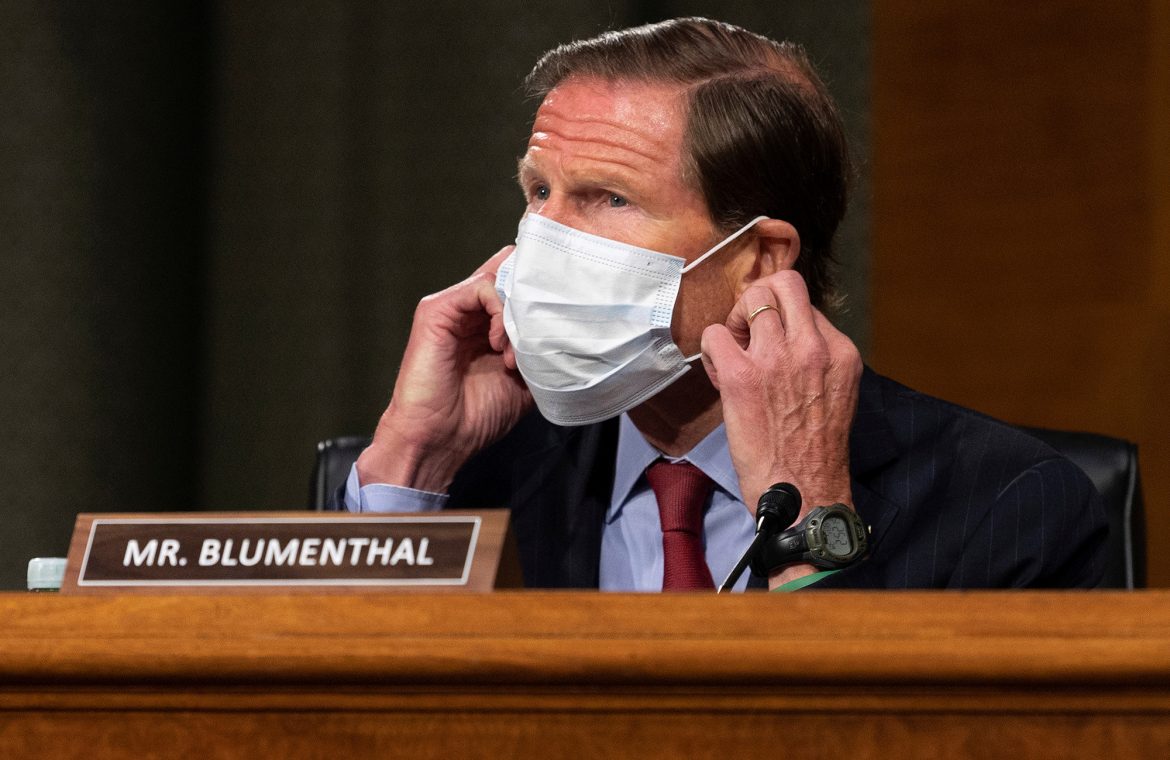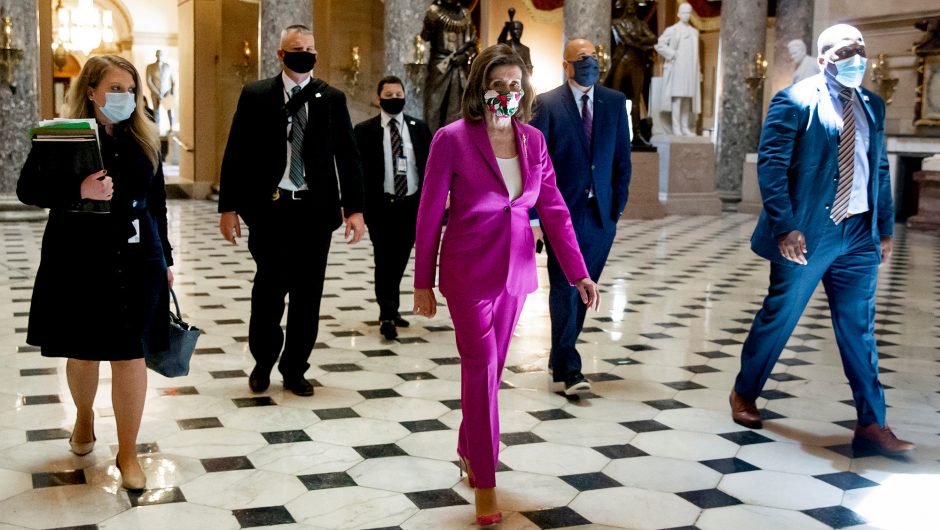Senators are certain a $3 trillion coronavirus bill poised to pass the House on Friday will die, as Republicans identify poison pills and some Democrats admit it’s an opening shot for negotiations.
Conservatives say provisions steer funds toward abortions and away from deporting illegal immigrants. And though House Speaker Nancy Pelosi (D-Calif.) is seeking to pressure the GOP-held Senate, even liberal allies admit the measure is a first draft.
“Every one of [the coronavirus bills] has started out with a proposal that then has been negotiated to reach bipartisan support,” Sen. Richard Blumenthal (D-Conn.) told The Post.
Blumenthal declined to comment on whether the Friday vote in the House should be scrapped, but said: “One way or the other, they’re going to be negotiated.”
Sen. Jon Tester (D-Mont.) told The Post: “It’s always better to do it in a bipartisan way. But maybe the opportunity wasn’t there. I don’t know.”
Still, Democratic leaders are calling on Senate Majority Leader Mitch McConnell (R-Ky.) to allow a floor vote on the sprawling 1,800 page package if it passes the Democratic-held House.
A Hill source told The Post that Republican Gov. Larry Hogan of Maryland has phoned GOP offices to urge action.
“McConnell is going to have to act as soon as the House bill is ready to move over to the Senate—any delay would just be derelict,” said Senate Minority Leader Chuck Schumer (D-NY), who brokered past virus deals with White House reps.
The massive bill would be the fifth federal coronavirus relief package, but faced a chorus of opposition from Republicans, who were reluctant even to identify provisions they could support.
“It’s political messaging only,” said Sen. Mike Rounds (R-SD). “There’s no chance in the Senate and they know it. Any time they start adding in attempts to provide federal funding for abortions in a COVID-19 response, we know they’re not serious.”
Sen. John Kennedy (R-La.) said major legislation in a divided Congress depends on leaders hashing out a compromise.
“What usually happens with leadership in both houses [is] they get together and they negotiate a deal. And then they come back to the rest of who are in labor — not management — and they say, ‘This is the deal. Take it or leave it.’ And what we normally have to do is moan and groan and grumble — and then we ‘moo’ and follow them like cattle. Now, it may not happen this time,” Kennedy said.
Sen. James Inhofe (R-Okla.) said it’s unacceptable that the Democratic-drafted bill left out Hyde Amendment language restricting abortion funding and that it removes a work requirement for food stamps and adds protections against deportation for certain illegal immigrants.
The bill includes almost $1 trillion in funding for state and local governments, which Republicans are wary of granting. It would authorize another round of direct checks up to $1,200 and extend a $600 per week boost in unemployment pay. It also would create a $200 billion “heroes fund” giving hazard pay to medical workers, allocate $175 billion to rent and mortgage aid and spend $75 billion on virus testing and contact tracing.
House Democrats were divided on the package, which was unfurled on Tuesday. Leaders of the Congressional Progressive Caucus urged a delay to consider the details.
Among Republicans, there’s division on how big a new bill should be, and how quickly Congress should act.
“I think the biggest mistake we generally make in a crisis like this is we under-budget,” said Sen. Marco Rubio (R-Fla.). “I’m concerned you’re not going to have an economic recovery if there’s no economy.”
But for other Republicans, several trillion dollars was too much.
“The scope of it actually makes it less likely we’ll even have a serious conversation,” said Sen. Roger Wicker (R-Miss.).
“The thing I don’t like is the $3 trillion price tag,” said Sen. John Boozman (R-Ark.).
“I think the wise thing for us to do is see how much money we’ve put out there and how it’s been spent and who it is helping,” said Sen. Richard Shelby (R-Ala.).
But conservatives were willing to note some agenda items they would like in legislation to address the critics.
Wicker said he’d like to work toward funding for broadband internet — something that would get $5.5 billion in the House bill.
Sen. Jerry Moran (R-Kan.) said he would like to enact a change “to make certain that charitable organizations qualify for PPP,” referring to the Paycheck Protection Act small-business loan program.
Rubio said he was interested in a proposed change to PPP to expand flexibility in the House bill, but said he didn’t have time to closely study the wording.
“Hopefully there are some things where we can find some common ground,” Boozman said. “This is a time where Republicans and Democrats need to be working together to solve some very real problems the nation is facing.”
President Trump, meanwhile, unloaded Wednesday afternoon on proposed election funding the House bill, which he said would allow for “cheating” with mail-in ballots. When pressed by a reporter, Trump declined to identify anything he likes in the bill.
“It’s as they say DOA, right?” Trump said.








